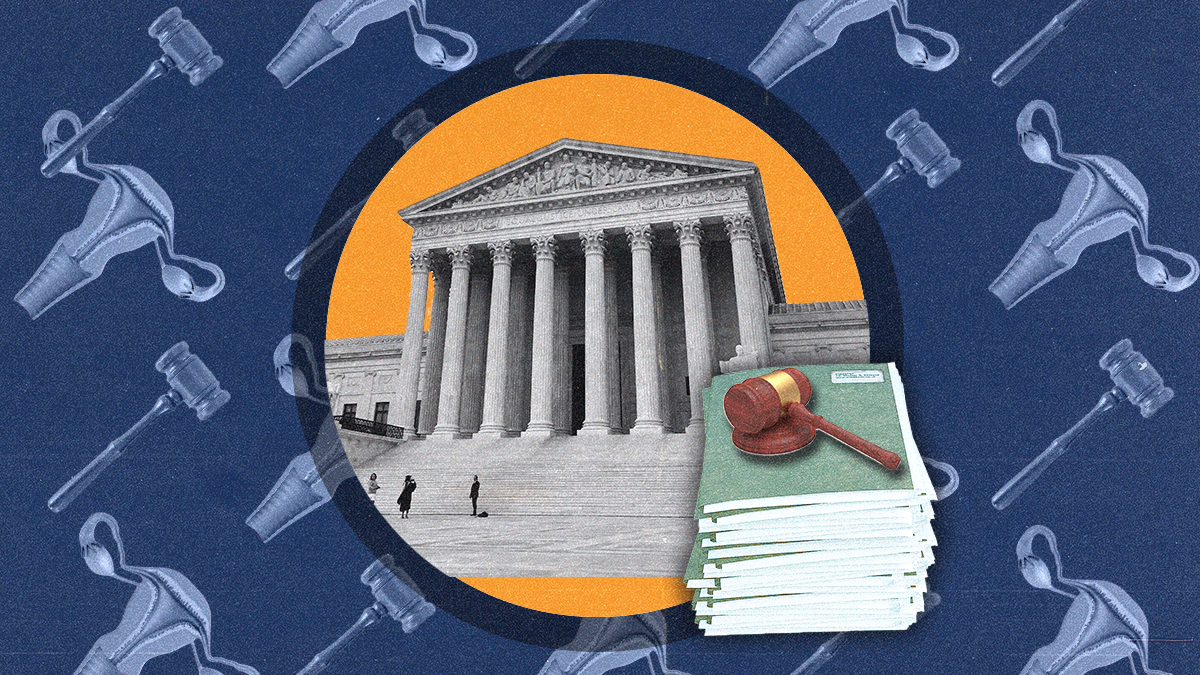June 24, 2022
The justices have spoken. After weeks of speculation following the leak of a draft opinion in early May, the highest court in the land has reversed the landmark Roe vs. Wade ruling that had legalized abortion in 1973.
“The Constitution does not confer a right to abortion; Roe and Casey are overruled; and the authority to regulate abortion is returned to the people and their elected representatives,” the decision read.
Background. The Supreme Court ruling is the culmination of a decades-long project by the Republican Party and conservative lobbyists to undo Roe and its affirmation in the 1992 Planned Parenthood v. Casey case, which said that states cannot enforce laws that place an “undue burden” on women seeking abortions.
Why now? After Mississippi enacted a law banning abortions in most cases in 2018, the state’s sole remaining abortion clinic took the case to court, saying it violated the premise of Roe v. Wade. The initial ban was blocked by a federal judge before reaching the Supreme Court.
Trump’s court. The conservative majority that overturned the half-century-old precedent on abortion law will be one of Trump’s most enduring legacies. On the campaign trail in 2015 – and hoping to woo Evangelical voters – Donald Trump vowed to appoint Supreme Court justices who would overturn Roe. Unsurprisingly, all three of Trump’s conservative appointees – Justice Neil Gorsuch, Justice Brett Kavanaugh, and Justice Amy Coney Barrett – voted in favor of gutting the law.
The ruling will now kick off an ugly battle within states over abortion rights. While women living in Democratic states – including New York, California, and Illinois – will continue to have access to safe and legal abortions, women in the South and Midwest could have to travel hundreds or thousands of miles to terminate pregnancies. Burdened by financial and family commitments, many women won’t be able to afford to take time off work to travel over state lines for the procedure – a process that can take several days due to onerous state laws.
Already, 13 states have “trigger laws” on the books that will outlaw abortions almost immediately. And the procedure is likely to be outlawed in another dozen states in the near term, pending ongoing legal proceedings.
The regional picture. The timing is remarkable considering that many countries in the Americas – home to some of the most restrictive abortion laws in the world due to the pervasive influence of the Catholic Church – have dramatically liberalized their abortion laws.
The Marea Verde (Green Wave) that swept Latin America in recent years renewed calls for the enhancement of sexual and reproductive freedoms, and the strategy of mass mobilization worked. In Argentina, abortion was legalized in December 2020, marking the first time that women in that country could legally terminate their pregnancies in over a century. Similarly, Mexico’s Supreme Court decriminalized the procedure last fall, giving rise to a host of legal shifts across states, a move recently followed by Colombia's Constitutional Court.
That Green Wave was inspired by Roe, which is now in the past.
From Your Site Articles
- The Graphic Truth: Where will American women get abortions ... ›
- The Graphic Truth: Abortion laws around the world - GZERO Media ›
- What happens after Roe v. Wade is overturned? - GZERO Media ›
- Why do Americans get so worked up about abortion? - GZERO Media ›
- Who cares if the Supreme Court justices like each other? - GZERO Media ›
- US Supreme Court fights: why ending Roe is only the beginning - GZERO Media ›
More For You
Think you know what's going on around the world? Here's your chance to prove it.
Most Popular
Donald Trump alongside Nigel Farage amid a television interview at his Trump Turnberry course in South Ayrshire during his visit to the United Kingdom, on May 3, 2023.
PA via Reuters
The US government will reportedly fund MAGA-aligned parties and think tanks in Europe. But with US President Donald Trump’s favorability in Europe so low, do they even want the money?
- YouTube
Zelensky agrees: elections matter #PUPPETREGIME
As more small businesses move sales, payments, and customer relationships online, they unlock new opportunities, but they also become easier targets for cyber-criminals and other threat actors.
© 2025 GZERO Media. All Rights Reserved | A Eurasia Group media company.
